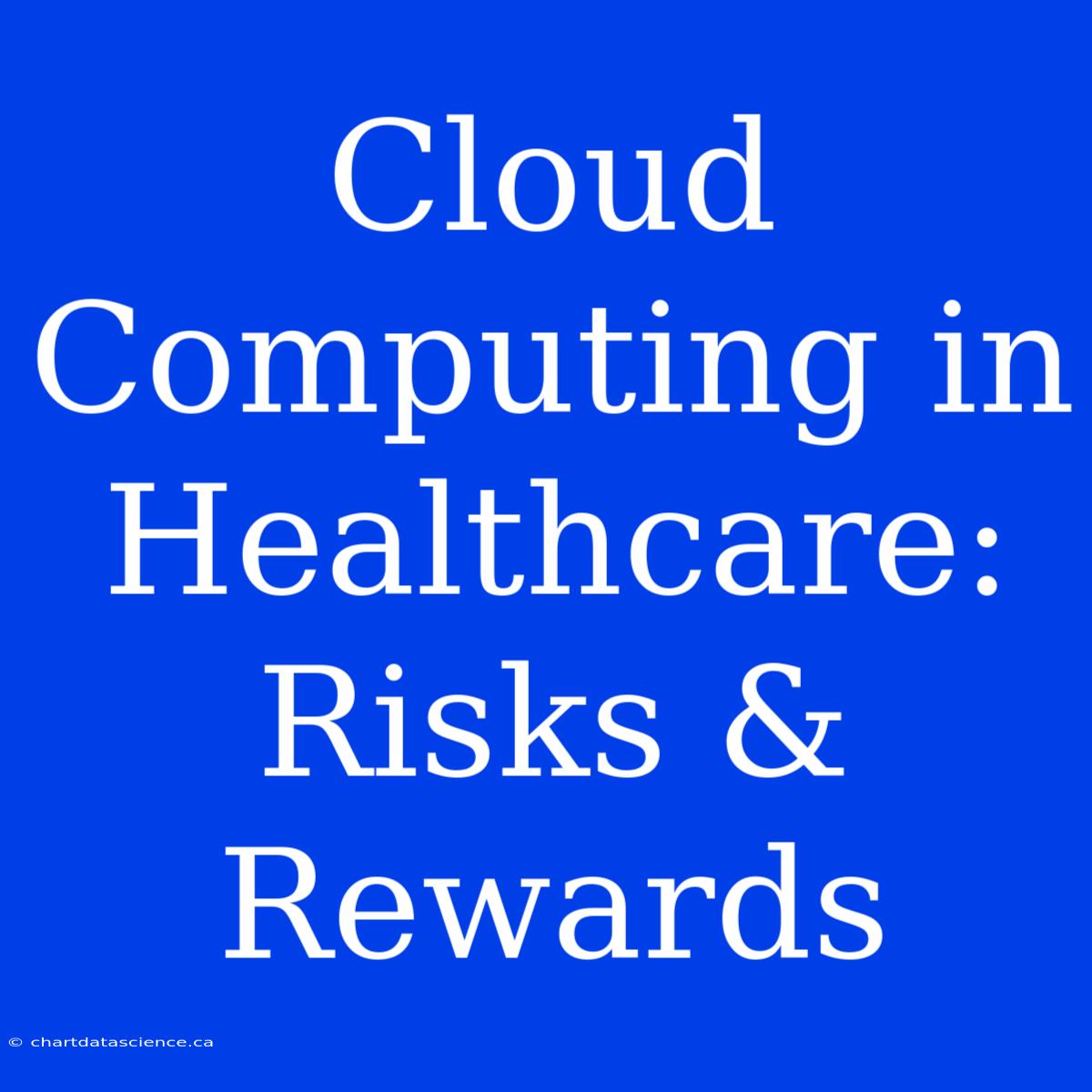Cloud Computing in Healthcare: Navigating the Risks & Rewards
The healthcare industry is undergoing a massive digital transformation, with cloud computing playing a pivotal role. From storing patient data to running complex medical applications, the cloud offers a plethora of benefits. But, as with any powerful technology, there are risks to consider.
The Allure of the Cloud:
- Cost-Effective: Cloud solutions allow healthcare providers to avoid expensive upfront investments in hardware and infrastructure. This translates to significant cost savings, especially for smaller practices.
- Scalability and Flexibility: Cloud platforms can easily scale up or down as needed, making it ideal for handling fluctuating patient volumes and data demands.
- Enhanced Security: Many cloud providers offer robust security measures, including encryption, access control, and regular vulnerability scans, surpassing what many healthcare institutions can manage on their own.
- Improved Collaboration: Cloud-based tools facilitate seamless collaboration between healthcare professionals, enabling efficient sharing of patient records, consultations, and treatment plans.
Navigating the Risks:
While the benefits are undeniable, navigating the risks associated with cloud computing in healthcare is crucial.
- Data Security and Privacy: Healthcare data is highly sensitive and requires the utmost protection. Breaches can lead to legal repercussions, reputational damage, and even patient harm.
- Compliance with Regulations: The healthcare industry is subject to strict regulations like HIPAA in the US and GDPR in Europe. Cloud providers must ensure compliance with these regulations.
- Vendor Lock-in: Choosing a cloud provider can create a dependency. Switching providers later can be challenging and disruptive.
- Downtime and Outage: Cloud services are not immune to outages. Downtime can disrupt patient care and lead to operational delays.
Mitigating Risks and Maximizing Rewards:
- Due Diligence: Carefully research and vet potential cloud providers, focusing on their security certifications, data privacy policies, and compliance with relevant regulations.
- Data Encryption: Ensure all sensitive data is encrypted both in transit and at rest.
- Access Control: Implement strong access control measures to limit access to patient information to authorized personnel.
- Regular Audits: Conduct regular audits of cloud security practices to identify and address potential vulnerabilities.
- Disaster Recovery Planning: Develop comprehensive disaster recovery plans to ensure continuity of operations in case of a cloud outage.
The Future of Healthcare:
Cloud computing is poised to revolutionize healthcare by enabling innovation, improving efficiency, and enhancing patient care. By carefully navigating the risks and embracing the rewards, healthcare organizations can leverage the cloud to create a more secure, connected, and patient-centric future.
Remember: The cloud is a powerful tool, but it requires careful planning, due diligence, and ongoing vigilance to ensure its safe and effective implementation in healthcare.

